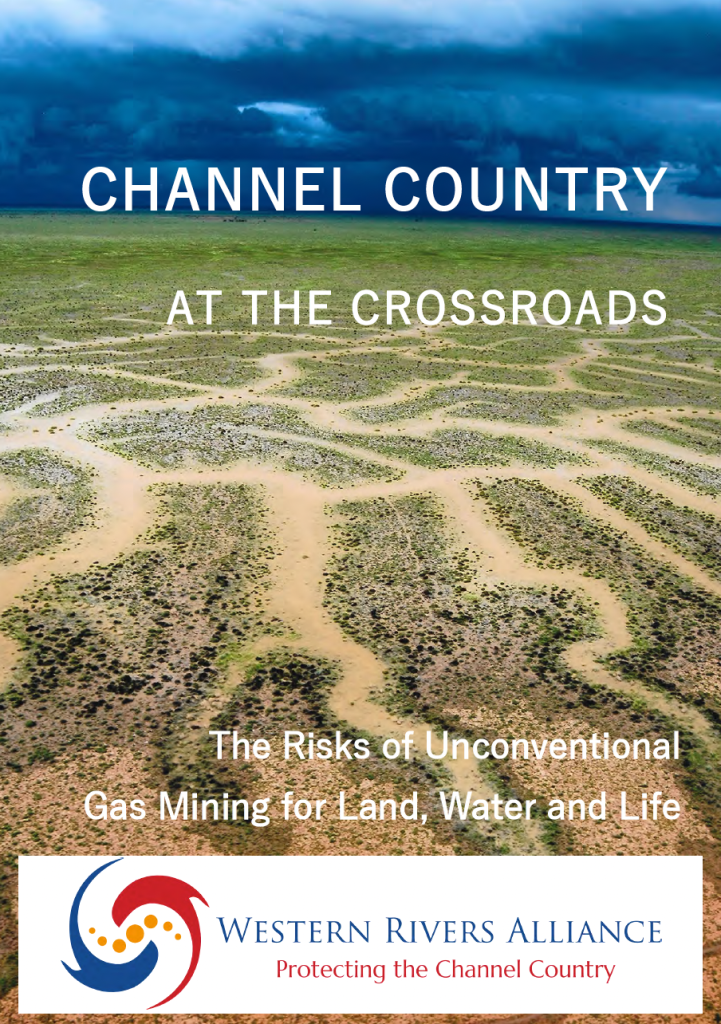Despite its agricultural, cultural and natural values, the unconventional gas industry is intensifying its interest in this region for extensive gas extraction from beneath the Great Artesian Basin.
Unconventional gas differs from conventional gas in two key ways. Firstly, it requires new, specialised (unconventional) techniques to extract it. These can include horizontal drilling- drilling down then horizontally across underground layers of rock and, often requires ‘hydraulic fracturing’ by injecting chemicals and gels with large volumes of water at high pressure.
Secondly, more infrastructure is required creating networks of wells, well pads, pipelines and roads- creating an industrialised landscape. Gas fields across the rivers and floodplains of the Channel Country could irreversibly damage the local landscape and the communities and industries that rely on it. To access gas in the Channel Country, wells would need to be drilled and fracked multiple times. This requires huge amounts of water which can only come from the Great Artesian Basin – the lifeblood of the grazing industry.
Well failure is a significant risk through blowouts and leakage and can contaminate soil and water. Contamination from fracking fluids and wastewater pose a serious risk to the grazing industry, particularly organic producers. Every gas well requires a well pad, an all-weather road and a pipeline and at times a storage pond. This infrastructure can divert water from its natural flow path and is susceptible to flooding when placed on the floodplains.
In 2015, pre-election commitments by then-Opposition leader Annastacia Palaszczuk to restore such protections were welcomed – but hopes were then dashed.
In May 2015, the newly-appointed Minister for Natural Resources and Mines, Dr Anthony Lynham, announced that new areas of the Channel Country would be put out to tender for unconventional gas exploration. Exploration tenders for 11,000 square kilometres of the Cooper and Eromanga Basins were opened up to multi-national companies without consultation with the region’s Traditional Owners, local beef producers or the broader community.
In the lead up to the 2017 election, the Palaszczuk Government recommitted to protecting the rivers and floodplains of the Channel Country – but the government continues to release new areas to exploration. The local community is still waiting on the delivery of that commitment. Traditional Owners have reported a lack of care and respect for important cultural sites by gas companies in NSW and other parts of Queensland.
Western Rivers Alliance shares many Australians’ desire for regional economic development, new income streams and employment opportunities in Outback regions. However, this should not come at the expense of existing local people and their industries.

